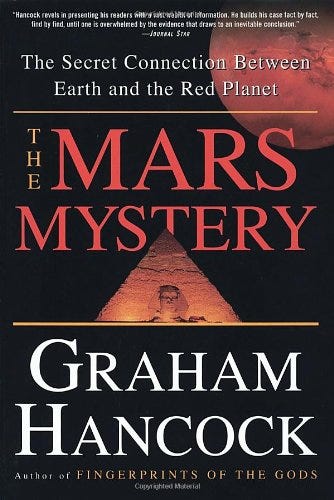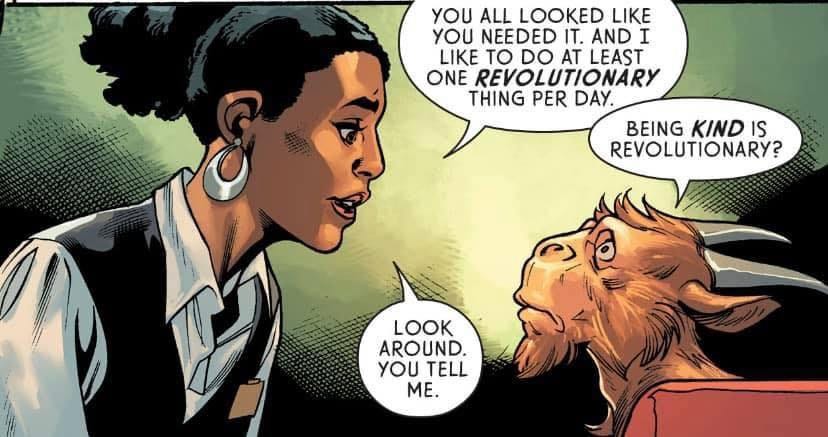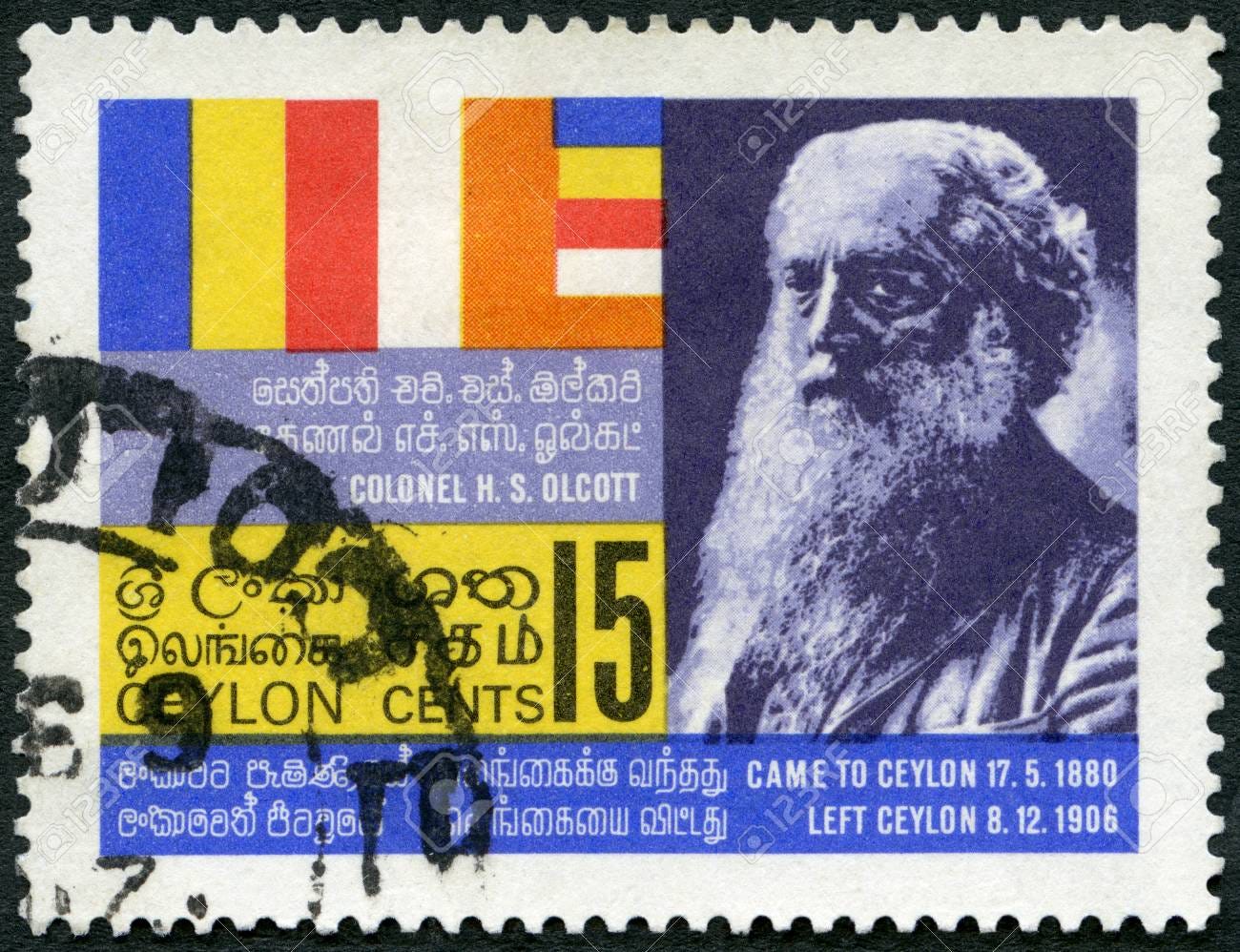Even More Difficult Conversations [Trenchant Edges]
Estimated reading time: 8 minutes, 57 seconds. Contains 1793 words
Welcome back to the Trenchant Edges!
This is where we chase good and bad ideas down over weeks, trading off hunters until our prey collapses with exhaustion and we can feast on their secret meats.
I’m your host, Stephen Fisher. And today we’re chasing down an open-loop about having difficult conversations.
But first a few updates. Yesterday I finally caught up with my friend who’s been reading about theosophy with some interest since he stumbled onto Colin Wilson’s The Occult back in the early 70s.
The conversation lasted two hours and I’ve got 500 words in minimalist notes from it. So… Yeah, lots of leads to chase down there. He pointed me to a couple of key connections between the Theosophical society and India’s decolonization movement I’d missed. As well as links to Johnny Quest and FDR’s New Deal.
So we’ll be having that write-up sometime this week when it’s done. We only have one more Sunday this year after today so next week will probably include some reflection on how this year has gone.
Fun.
Why talk about having hard conversations again?
I started writing about this here because, frankly, I was scrambling to find a topic I could discuss and read parts 1 and 2 of this… eh, they suck.
They’re incomplete, rambling, and aren’t really on any kind of direct topic here.
But I want to finish following up with them because despite those flaws, the subject matter *is* important to our larger conversation. If you’re going to be part of a fringe, you’re gonna have a lot of people you disagree with around.
And learning to artfully navigate those differences is so important to get by. But it also mediates your sense of connection with those around you. And feeling connected to people can make your life way better.
Since we’re likely entering an era where substantial improvement of one’s material conditions is becoming less an option, connection is one of the few major balls that’s substantially in your court.
One of the key differences between who I was in high school (A neurotic broken child) vs who I am now is that I know how to connect and nurture relationships with people and it’s a night and day difference in my experience.
And even though many details of my life are objectively worse especially my health & precarity, I’m orders of magnitude happier than I was then.
Connection matters.
But to build those connections we may need to think or act differently than we do. And that’s hard.
To make this more practical I want to talk a bit about what makes a conversation difficult, a little about intent, and layout some of the ideas that have helped me have better conversations.
But first, more detail on what I mean by difficult conversations.
What the Fuck is a Difficult Conversation?
The easiest way to define one is an interaction where one or more people involved get emotionally charged. This can happen almost anywhere because getting upset is just something people do and we all go there from time to time.
People are irrational, and while that has a complex mess of good and bad, it can make for some really awkward situations.
It’s possible to have conversations where there are no disagreements where one person just freaks out and is a real asshole.
Emotions are tricky little fuckers and that leads lots of people to want to avoid provoking them in others. Understandable, but often dangerous. Avoiding important things can lead to deep structural problems in relationships.
So it’s important to recognize emotional resistance to wanting to discuss a subject and to learn how to tease out why you feel that way and address the underlying issues you find.
Even good emotions can make you feel icky in the wrong context.
And since the long-term health of friendships, collaborations, romance, and so on relies on avoiding the kind of longstanding bitterness avoiding hard subjects can bring, well, it’s better to have difficult conversations. I’ve often failed this and have plenty of regrets for my trouble.
Intentions
I tend to think most interpersonal conflict really comes from some mix of unclear expectations or mismatches about what’s actually happening.
One of the ways the Internet has changed socializing is it’s made jumping into deep conversations with people you know nothing about (or worse, very little), WAY more common.
And that has made misinterpreting someone’s context or intentions pretty much constant. But that’s not the only problem.
People are complex and we’re rarely fully aligned with a singular goal or position.
So it’s very helpful to decide on a specific goal you want to pursue within an interaction. The one I’d usually recommend is Seeking Understanding.
Now, there are plenty of other intents one might have. Persuading, educating, raising status, condemning, and so on.
But let me persuade you on the benefits of seeking understanding. See, the biggest obstacle in a conversation is always your own thoughts and reactions. You’ll often hear things that boggle your mind.
And seeking understanding simplifies that by seeking clarification when someone makes a dubious statement and then by depersonalizing the follow-up.
So instead of reacting to something foolish, you can ask them, “what do you mean?” or “Where did you hear that?” or “Where can I read more about that?”. And once you’re searching for clarification, you’ll feel less pressure to react.
Best case? You’ll find some information you had legitimately missed that you need to rethink your own views because of. And you’ll get it without making an utter asshole of yourself by telling someone off who, in fact, did know what they were talking about.
More often people won’t have ready sources or won’t want to clarify. That’s also OK. It tells you how much effort and time the conversation is worth to them, so you can plan accordingly.
And even in the small number of cases where they provide information that’s wrong in a complex way, you get more information on who the person is, how they think, what sources are important to them.
Lastly, by focusing on their claims and wanting more information you avoid making the problem about them. Which usually makes people more willing to share their ideas freely.
So if they are a bad person, you can point to them openly praising Hitler rather than some racist innuendo.
Makes it much easier for people watching to parse.
It’s a real hassle saver.
I’ve lost count of the number of times I was ready to maul someone only to find out I’d read what they said badly or missed key information.
Seeking understanding in conversations turns a lot more of them into wins even with people you disagree with. It’s handy.
It also makes it easier for people to know how to react to you.
Let’s be Honest
The more I write this and the more I delete from this post, the more I feel like I shouldn’t have even started this topic. It doesn’t really mesh with the rest of the content or make sense.
Does anyone want to read it? I can go on forever about communication. But it seems like I’d be rejecting a lot of the advice I’d be giving if I tried to pad out an advice column rather than just taking the loss and moving on.
Which is a bitter pill in my third hour of writing and deleting from this piece, but better than continuing it for another hour or two.
Let’s do something more fun instead. Here are just some things I learned in my conversation yesterday.
Conversations with John
Some context: My friend John is a mesoamerican anthropologist with a strong interest in fringe culture. We met on a Terence McKenna Facebook group in 2015 where he was arguing with Graham Hancock fans.
Having only caught a few video talks, I thought John was harsh so I thought I’d wade into the fray and defend that cool guy from a banned TED talk. Two days later, I had to admit that John was very much right about Hancock’s dishonesty.

Since then we’ve mostly kept in touch and traded bits of esoterica lore. And when I started writing again about Theosophy, he was one of the first people I wanted to talk with because he’s been collecting information about it since the early 1970s. He’s also written extensively on the 2012 apocalypse phenomena.
With that established, here are some odds and ends I’m not sure will have a coherent place in the theosophy piece but are interesting on their own.
Between 1501 and 1505, noted slaver Christopher Columbus wrote a book of Prophecies suggesting the second coming of Christ would happen in the 1700s. I don’t know why this just… makes perfect sense to me but it does.
In the early 1970s, discussion of “The occult” was mainstream enough that grocery stores had books on mysticism in them.
Ghandi’s title of Mahatma was bestowed on him while studying Theosophy in London by Madame Blavatsky herself.
Theosophical Society co-founder Henry Steel Olcott was a major driver of a Buddhist revival in Sri Lanka, where he’s still honored today as the White Buddhist.
Jiddu Krishnamurti was kidnapped by the Theosophical society and declared the World Teacher until he escaped them and renounced the title in 1924. There’s a lot of wild shit in this story we might have to do a full investigation on once we’re clear.
FDR’s Vice-president (41-45) Vice President Henry Wallace lost a 1948 presidential election in part because letters to his guru Nicholas Roerich, a Russian mystic, were discovered. He was very nearly our first New Ager President.
Camp David was initially named Shangri-La after a 1933 novel by James Hilton that FDR really liked. Eisenhower renamed it after his father in 1953.
While convention says that nothing happened in December 2012’s apocalypse, it *was* the month Donald Trump decided for sure to run for President in 2016. >_> (this was a joke. I think.)
New Thought gave us Donald Trump’s worldview via Norman Vincent Peale’s Power of Positive Thinking. Peale was a right-wing nutcase and also Trump’s childhood preacher.
And that’s maybe a quarter of the stuff touched on in my notes. Gonna be fun trying to connect all this to the narrative I had in mind. But hey, that’s half the joy of research.
Alright, that’s at least all weird enough that we’re back to familiar ground.
Much better.
Over the next week we’ll be having an irregular email, and then the usual ones on Friday and Sunday.
Sound good?
Agreed.
See you then and thanks for riding this rocky phase-out. Love y’all.
-SF
Oh, and if you like things here you can still subscribe.





So, about first part: I'm glad that you wrote about it. Honestly, I feel kinda dumb because I have never thought about my intentions when having a conversation. I know that it isn't as weird as usual content, but its really important. So thanks for that.
About theosophy, these are really interesting facts, but please, when you will be writing piece about it, could you start from the beginning? I dont know shit about theosophy (like, I only know this word from some YouTube video I guess?) Thanks in advance.
PS sorry for being inactive, but I've been struggling with depression + lack of time and didn't feel like writing. I'm still reading every post tho